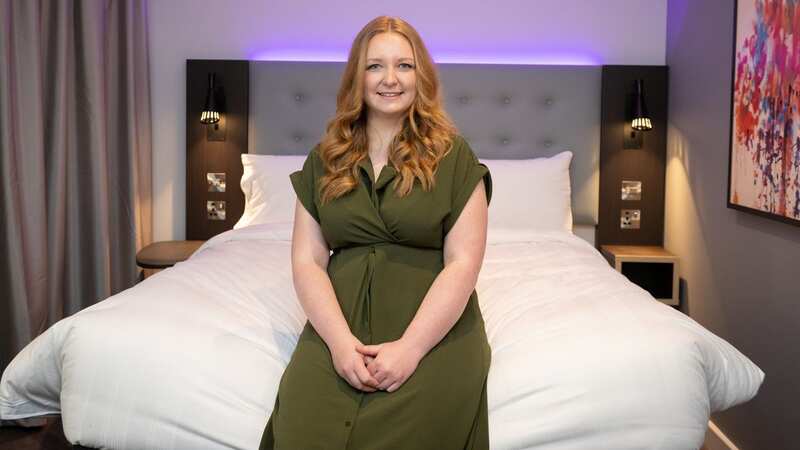Four in 10 blame their other half for a bad night's sleep
Four in 10 people blame their other half for an interrupted night's sleep with snoring, restlessness and duvet hogging the chief disturbances.
Research of 2,000 adults who share a bed with their partner revealed more than a quarter of couples don't go to bed at the same time. And use of electronic devices when trying to nod off, sleep talking and lighting up the room late at night were other disruptions regularly encountered.
While 36 per cent reckon technology negatively impacts their sleep with blue light from devices and the TV being on said to be issues, 35 per cent believe it can have a positive impact using relaxation apps, podcasts and white noise machines. A third don't think they get enough quality sleep each night, with respondents averaging six hours and 53 minutes of slumber.
Of that figure, only 53 per cent of it is considered uninterrupted, deep sleep. The research was commissioned by Premier Inn which has released a sleep etiquette guide with tips on how to ensure you and your partner get the perfect night's sleep. Sleep expert Hannah Shore from Silentnight, who has worked with the hotel chain on the guide, said: "The research has shown a real variance of routines are had across the UK.
"While a good number share a harmonious sleep schedule, others are finding their night's sleep is interrupted by their partner. Technology can play a part in causing disruption, mainly with its use while someone else tries to nod off, so there's definitely work to be done on ensuring everyone enjoys getting their rest without a negative impact."
 Amanda Holden among stars fronting Comic Relief as Red Nose has 'makeover'
Amanda Holden among stars fronting Comic Relief as Red Nose has 'makeover'
Common happenings at bedtime include other halves staying up to watch TV shows they like once their partner has gone to bed and scrolling of social media between the sheets. It also emerged 42 per cent have slept in a separate room to not be disturbed by their other half, with 19 per cent of those doing so often and four per cent every night.
However, six in 10 are left feeling guilty if they do interrupt their partner in some way and 29 per cent think they could do with aligning their routine more with their bed mate. If heading to bed at a different time, 41 per cent try their best to sneak in as quietly as possible, though they are only successful in not waking their partner 55 per cent of the time.
When it comes to technology, more than a third (35 per cent) of those polled via OnePoll believed it can play a positive part of the bedtime routine. Relaxation apps, white noise machines and blue light filters were seen as the top ways, as well as 24 per cent enjoying the use of sleep tracking apps. That said, 43 per cent find their partner's use of technology at bedtime annoying.
The sleep etiquette guide produced by Premier Inn has been created to allow readers to better incorporate technology into their routine, without annoying their partner including what volume setting to listen to things like sleep podcasts.
Sleep expert Hannah Shore added: "We've created a sleep etiquette guide to help people make little tweaks to their routines that can bring great reward and great rest. The research showed an average of less than seven hours sleep, and half of that being interrupted, so there's definitely room for improvement."
"Simple things such as agreeing times to put phones down, hit the lights or even allowing others to get to sleep first can make all the difference."
Top 10 ways sleep is negatively impacted
1. Snoring
2. Restless movements
3. Pulling the bedding over too far to 'their side'
4. Hogging the bed/ rolling over onto 'my side'
 Vital to celebrate Windrush pioneers, says Lenny Henry ahead of 75th anniversary
Vital to celebrate Windrush pioneers, says Lenny Henry ahead of 75th anniversary
5. Temperature preferences
6. Alarms
7. Sleep talking
8. Use of electronic devices
9. Late-night lights
10. Fall asleep with audible sound playing in headphones
Sleep expert Hannah Shore's sleep tips
- Be respectful of each other: always keep the bedroom quiet and dark while your partner is sleeping.
- No switching on big lights: Don't switch them on when someone's trying or already asleep and avoid banging about keep noise to a minimum.
- Get your things ready for the next morning: If you're getting up before your other half, make sure you have things set aside the night before to minimise disruption. - Listen to a podcast...quietly: A podcast can help you switch off from all the things going around in your head, but if you do, make sure you use headphones with volume at a sensible level as to not interrupt your partner.
- Switch off audio automatically: If you are listening to something to get to sleep, set it to turn off automatically after 30 minutes as you should be in a deep enough sleep by then.
- Turn brightness down on your phone: Use eye comfort mode on your device to rid of harsh blue tones and instead have subtle yellow ones.
- Don't listen or read anything too stimulating: Content is important, you don't want anything that's going to keep you awake because it's too exciting and don't check emails or watch something too stimulating.
Read more similar news:
Comments:
comments powered by Disqus
































